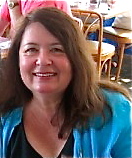Professor of Anthropology, Emerita
William Isaac Cole Professor of Anthropology
Contact
Education
Ph.D., M. Phil., CUNY
M.A., New York University
B.A., Kirkland College
About
Development, gender, food studies, cultural transformations of the body, social memory, sub-Saharan Africa, S. Pacific
Teaching Interests
I regularly teach elective courses such as: “Peoples and Cultures of Africa,” “Gender in Africa,” “Feast or Famine: The Ecology and Politics of Food,” “Political Anthropology,” “Women and Development,” and “Gender and Social Organization.” My major core course rotations include: a First Year Seminar, “Magical Hair,” “Research Methods,” “Seminar on Anthropological Theory,” and “Senior Seminar”
I am very interested in linking student learning inside the classroom and the library to applied experience in the outside world. For example, I provide historical research opportunities to students in my First Year Seminar (FYS) in the Wheaton Archives.
Students enrolled in Research Methods practice a range of qualitative data gathering research techniques in a social setting of their choice. My Feast or Famine course, was transformed, with a grant from the Hewlett-Mellon Foundation, into a “super-infused” experiential learning course where students create a campus-wide feast to honor the life work of Mahatma Gandhi, volunteer at a local food bank, and direct a dinner/speaker series on contemporary food issues such as fair trade, community assisted agriculture, and organic farming. (Food for Thought)
I am particularly excited about the blended-learning digital field course that I originated in 2010, “Tanzania: Education and Development,” which provides the opportunity for me to take students into the field for the month of June to study development challenges in Africa for the 21st Century. This course enables students to learn a qualitative research skill set that includes extensive interviewing, field recording, and observations in two different urban settings, and two weeks of volunteer teaching in an English language enrichment program for secondary school students in a rural village. I also enjoy experimenting with different project-based learning opportunities with technology in my courses.
In 2012 I introduced a “Dining Around the Dimple” blog assignment into the Feast and Famine course. Students were asked to create several blog posts (and comment on others’) on anything involving food consumption at Wheaton or the surrounding community and to capture a visual image to illustrate their post.
In the most recent Women and Development class we used the 2015 benchmarks of the Millennium Development Goals to track the progress of countries around the globe in meeting targets in areas such as education, maternal and infant health, and clean water that impact women and their dependents. Students worked in teams to mine and visualize data from a variety of sources in order to measure world progress in fighting poverty and inequality.
Student Projects
I love collaborating with students and engaging them in projects that lead to publication. In an earlier version of the Theory Seminar (2002) students were engaged in a part of a multi-year project to provide text searchable abstracts for all American Anthropological Association academic journals and each student published two electronic journal entries during the course of the semester. In the digital field course that I run in Tanzania I collaborated with the twenty participants and technology liaison Patrick Rashleigh to produce a digital story “Letters of Hope,” published in the journal CURA (an on-line journal at the intersection of art and social activism.
That story emerged out of a creative writing assignment the Wheaton volunteers developed for their classes in the Tanzanian schools and focused on what students saw as the biggest development challenges in their communities. A year later students in the field course collaborated with me on the digital story, “These Roots Run Deep” which chronicles a local development project in W. Kilimanjaro that combines tree planting with educational programs to combat climate change.
Each year returnees from the Tanzania field course organize an Africa Day program in collaboration with the team teachers for the sixth grade Norton Middle School Geography course. The Wheaton students provide an interactive slide show and then go into the classrooms to work with the middle schoolers who write letters to Tanzanian pen pals. Over the years Norton Middle School students have raised over $5000 in funds to help support academic, athletic, and income-generating projects in Tanzanian secondary schools and cooperatives.
All anthropology majors complete an independent empirical research project for their capstone senior seminar that culminates in a thesis and presentation of their research. Since joining the Wheaton faculty in 1988 I have supervised projects ranging from local studies of Norton Town politics and the changing demographics of Catholic parishes in Attleboro to studies of local tourism in South African townships and the sub-culture of the annual Miss Samoa beauty pageant. In addition, some students choose to work on a yearlong honors thesis project. Examples of recent honors theses committees I have served on include a project on young adults combating cancer (Lily Mulcahy; thesis supervisor), a study of the networks of young unmarried mothers (Melanie Sharrick; committee member), a thesis on coffee marketing and fair trade (Sally Dexter; committee member) and an anthropological study of the Church of Latter Day Saints (Tofani Grava; committee member).
Research Interests
I am a Cultural Anthropologist who specializes in sub-Saharan Africa with a secondary area focus in Pacific Studies. I have been conducting field research in East Africa (mainly Tanzania) since 1982 on projects as diverse as education and social inequality; famine and sustainable agriculture; memory and material culture; and women, cooperatives, and micro-enterprise.
The research project I am working on currently focuses on micro-enterprise/microcredit programs targeted to women in the global south and questions the highly publicized benefits of such schemes for women and their dependents. Research and publication of the results from this project have been facilitated by my award of the William Isaac Cole endowed chair in Anthropology 2015-20.
